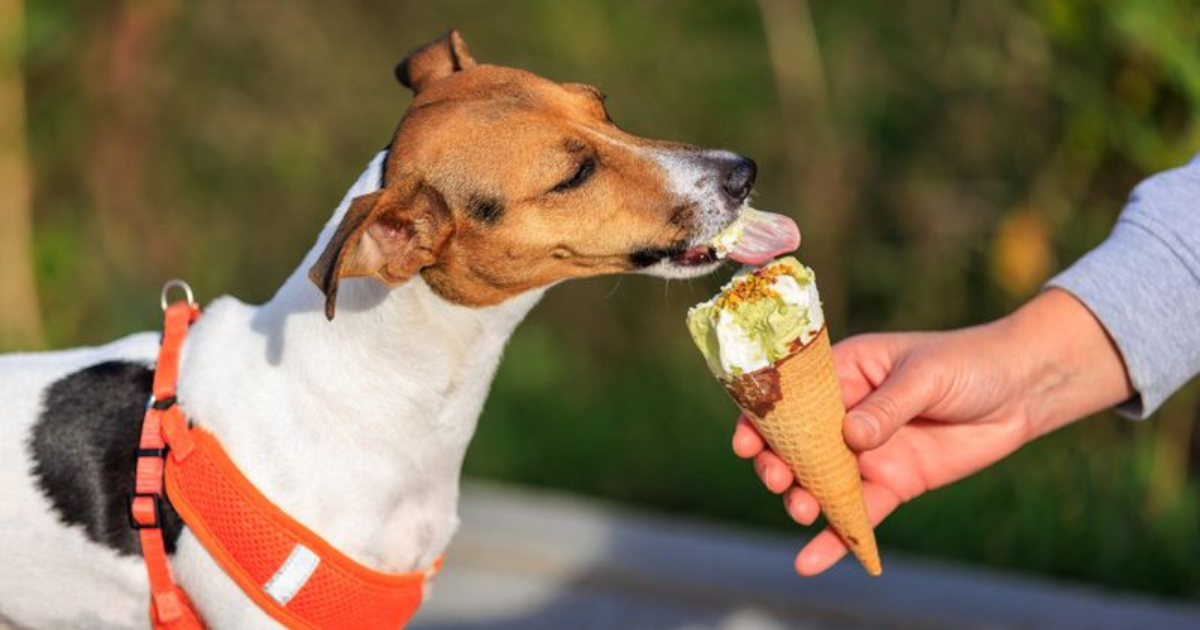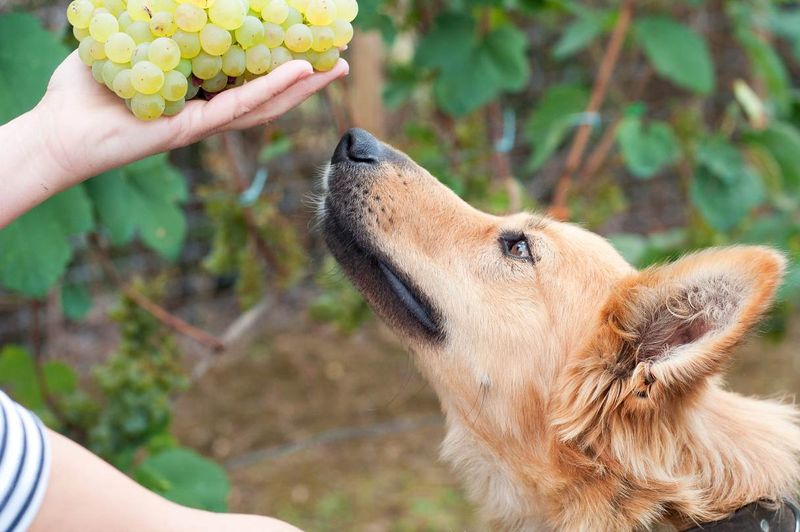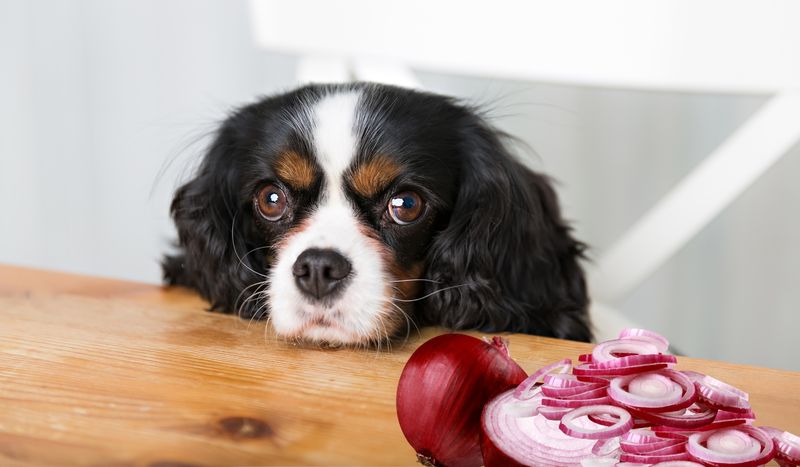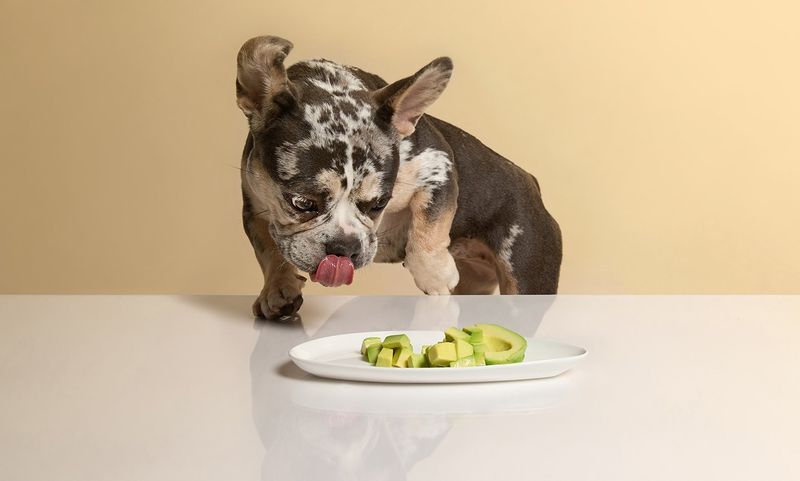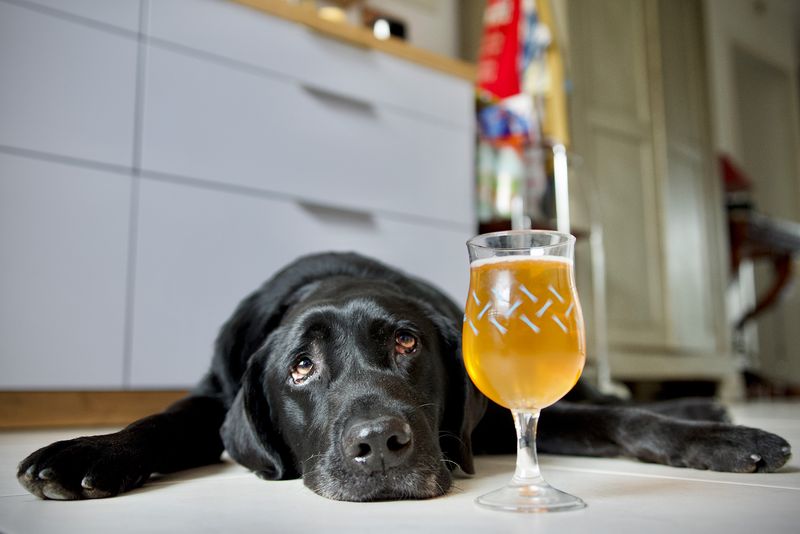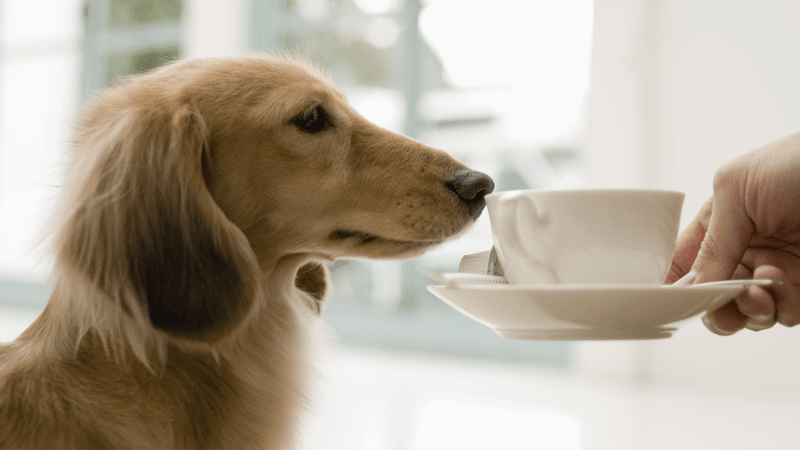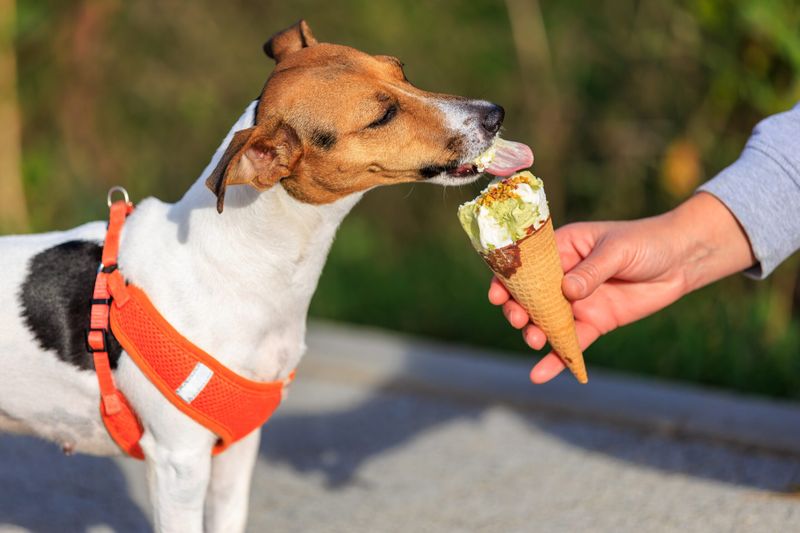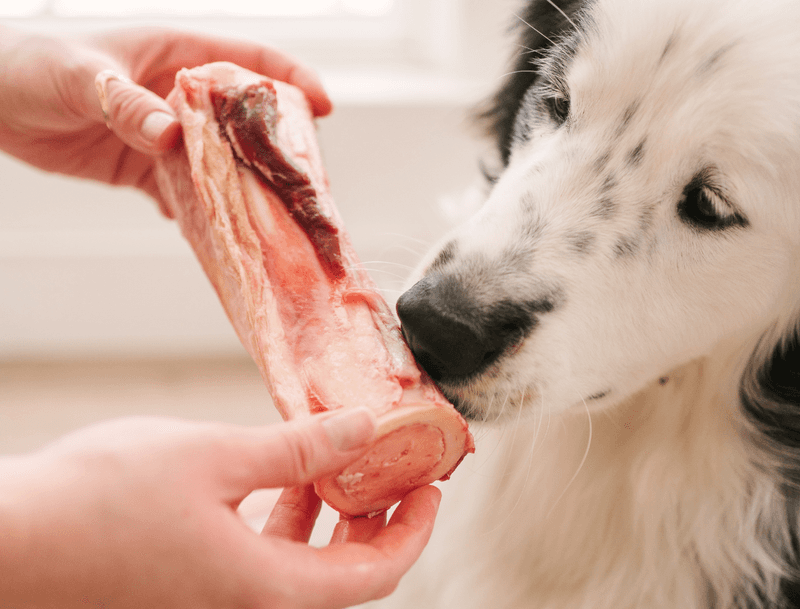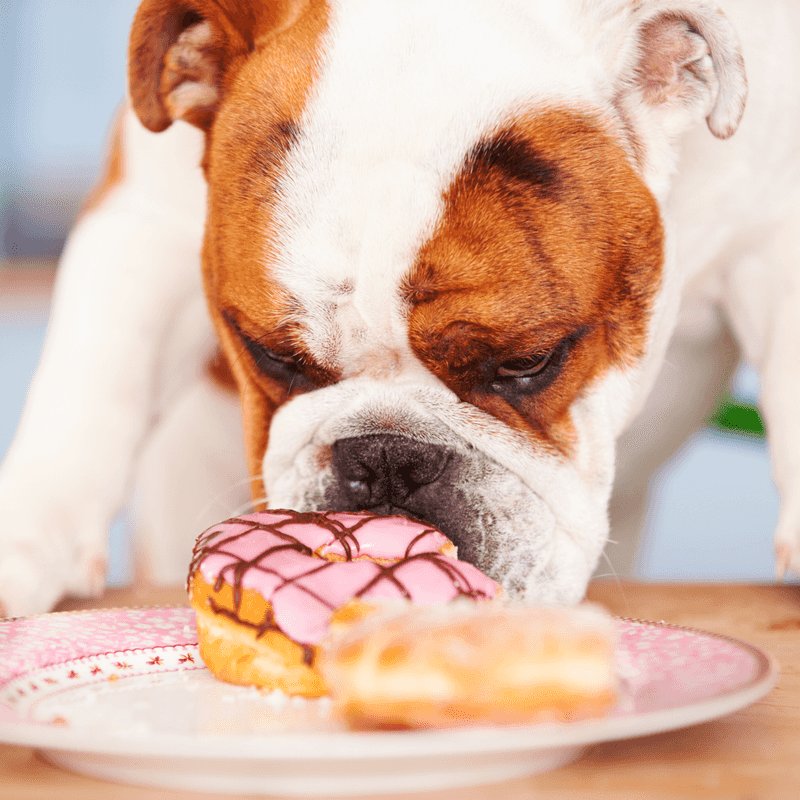📖 Table of Content:
As loving pet owners, ensuring the health and happiness of our furry companions is a top priority. One crucial aspect of this is understanding what foods are safe for dogs to consume.
Surprisingly, many common human foods can be harmful, or even toxic, to dogs. This blog post explores ten items you should absolutely avoid feeding your canine friend to maintain their well-being.
1. Chocolate
It might be a beloved treat for humans, but chocolate can be extremely hazardous to dogs. The culprit is theobromine, a compound found in cocoa, which dogs metabolize slowly.
Even small amounts can lead to chocolate toxicity, causing symptoms like vomiting, diarrhea, and increased heart rate. In severe cases, it may result in seizures or even death.
Dark chocolate and unsweetened baking chocolate are especially dangerous due to their high theobromine content. Always store chocolate and cocoa products out of your dog’s reach.
If your dog accidentally ingests chocolate, it’s crucial to contact a vet immediately. Acting promptly can make a significant difference in the outcome. To ensure your dog’s safety, educate friends and family about the dangers of chocolate for pets.
2. Grapes and Raisins
Consumption of grapes or raisins can lead to sudden kidney failure, posing a grave risk to your pet’s health. The exact substance causing this reaction remains unidentified, but even small amounts can be dangerous.
Symptoms of grape or raisin toxicity include vomiting, lethargy, and a lack of appetite, often within a few hours after ingestion. If untreated, it can result in severe renal damage.
Immediate veterinary care is essential if your dog consumes grapes or raisins. As a precaution, keep these fruits out of reach and ensure guests know not to offer them to your dog. Safe snack alternatives include apple slices or carrot sticks, which are both tasty and non-toxic.
3. Onions and Garlic
These vegetables contain thiosulfate, which can damage red blood cells, leading to anemia. The effects can accumulate over time, even if small amounts are consumed regularly.
Symptoms may include weakness, vomiting, and breathlessness. In severe cases, organ damage may occur. Cooking does not diminish their toxicity, so avoid feeding any form of onions or garlic.
If you suspect your dog has ingested these, consult a veterinarian promptly. To prevent accidental ingestion, keep these ingredients securely stored. Educating your household about the dangers of sharing table scraps containing onions or garlic can also help protect your pet.
4. Avocado
Avocados contain persin, a toxin that can be detrimental to dogs. While small amounts may not cause significant harm, larger quantities can be problematic. Persin is found in the fruit, pit, leaves, and bark, making the entire plant potentially dangerous.
Symptoms of avocado toxicity include vomiting, diarrhea, and potential respiratory issues in severe cases. Even the large pit poses a choking hazard or could block the digestive tract if ingested.
To keep your dog safe, avoid feeding them any part of the avocado. Opt for dog-safe fruits like blueberries or bananas instead. If your dog shows symptoms after consuming avocado, seek veterinary advice immediately.
Awareness and safe storage practices can prevent accidental exposure to this tasty but risky fruit.
5. Alcohol
It might sound obvious, but it doesn’t hurt to point out that alcohol is toxic to dogs and should never be given intentionally or unintentionally.
Dogs are much more sensitive to alcohol than humans, and even small amounts can cause alcohol poisoning. Symptoms include vomiting, disorientation, and difficulty breathing, which can escalate to coma or death.
Common sources of alcohol exposure in pets include beverages, unbaked bread dough, and certain household products. It’s important to secure these items to prevent accidental ingestion by your pet.
If you suspect your dog has consumed alcohol, seek veterinary help immediately. Quick action is essential to mitigate the effects of alcohol poisoning. Educating family and friends about the dangers of alcohol for dogs can prevent accidents and ensure a safe environment for your beloved pet.
6. Caffeine
Found in coffee, tea, energy drinks, and certain medications, caffeine ingestion can lead to restlessness, rapid breathing, heart palpitations, and muscle tremors.
In severe cases, it may result in seizures or collapse. The signs of caffeine toxicity can appear within one to two hours of consumption. It’s crucial to keep caffeinated products out of reach and educate others in the household about the risks.
If you suspect your dog has consumed caffeine, immediate veterinary attention is necessary. To ensure your pet’s safety, consider alternatives like herbal teas or simply keeping all caffeinated items securely stored and away from curious paws.
7. Macadamia Nuts
The exact reason why macadamia nuts are toxic for dogs is unknown, but ingestion can lead to weakness, vomiting, and hyperthermia. Even a small number of nuts can trigger adverse effects.
Symptoms typically appear within 12 hours and can last up to 48 hours. It’s important to avoid feeding your dog any products containing macadamia nuts.
Immediate veterinary care is recommended if your dog ingests these nuts. To prevent accidental consumption, keep macadamia nuts and related products securely stored. Offering safe alternatives, such as dog-friendly peanut butter, can satisfy your pet’s cravings without the risk.
8. Xylitol
Xylitol is a sugar substitute found in many sugar-free products, from chewing gum to baked goods. While safe for humans, it is extremely toxic to dogs. Even small amounts can lead to a rapid release of insulin, causing hypoglycemia (low blood sugar).
Symptoms of xylitol poisoning include weakness, seizures, and loss of coordination. In severe cases, it can lead to liver failure. It’s crucial to check the labels of products for xylitol and keep them out of your dog’s reach.
If ingestion occurs, immediate veterinary attention is vital. Acting quickly can significantly improve the prognosis. Educating household members about the dangers of xylitol and keeping sugar-free products securely stored will help protect your dog from this hidden hazard.
9. Cooked Bones
Cooked bones may seem like a natural treat for dogs, but they pose significant risks. Unlike raw bones, cooked bones can splinter easily, which can lead to mouth injuries, choking, or intestinal blockages.
Symptoms of complications include vomiting, lethargy, and abdominal pain. To prevent these risks, it’s best to avoid giving your dog any cooked bones.
If you suspect your dog has ingested cooked bones and they display unusual symptoms, contact a vet immediately. Offering safe chewing alternatives, like specially designed dog chews, can satisfy your dog’s natural urge to chew without the dangers posed by cooked bones.
10. Artificial Sweeteners
Found in sugar-free products, artificial sweeteners can cause a sudden release of insulin, leading to hypoglycemia. This condition can cause weakness, seizures, or even liver failure.
Symptoms of poisoning may appear rapidly, necessitating immediate veterinary care. It is crucial to keep products containing artificial sweeteners away from pets.
Reading product labels and educating family members about the risks can prevent accidental ingestion.
Choose dog-friendly treats without artificial sweeteners to ensure your pet’s safety. Prompt veterinary attention in case of ingestion is essential to mitigate the effects of poisoning and safeguard your dog’s health.
